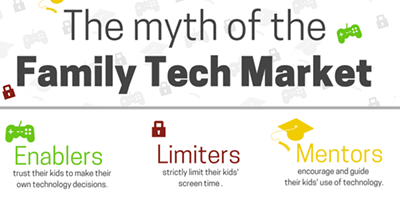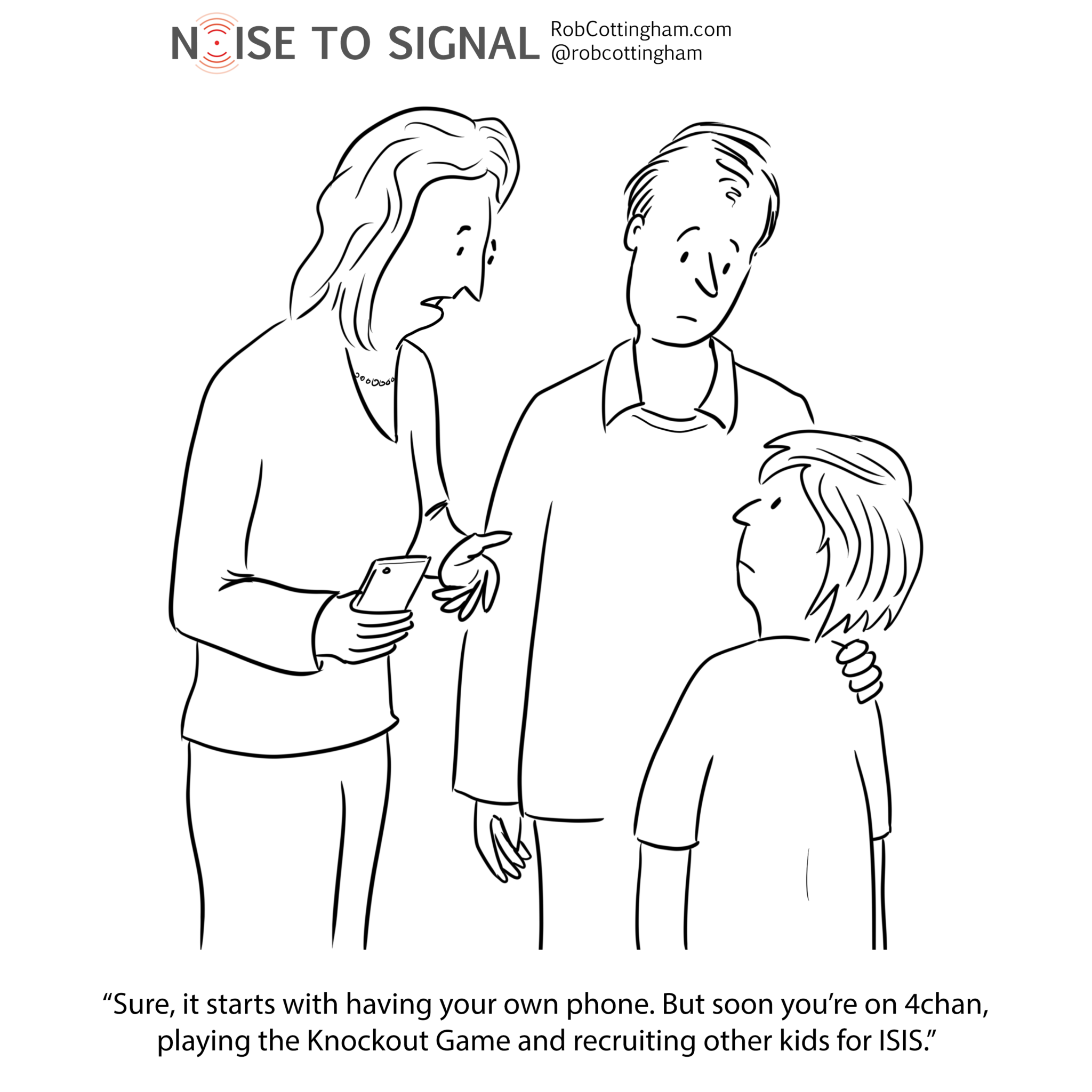Skim the media headlines, and there seem to be only two possibilities when it comes to parents, kids and technology. Either
- Parents should shield their kids from all screens until the age of 30, lest they become distracted, lazy and incapable of forming memories more complex than a 140-character message. Or,
- Learning to code will solve everything from youth homelessness to the mumps.
(Bonus points if you can find a writer whose byline has appeared under both kinds of headline.)
 My wife Alexandra Samuel has studied the way parents tackle their kids’ relationship with technology over several years now. Her two-year study of more than 10,000 North American parents has some fascinating findings that she covered at South by Southwest, in a session dubbed The Myth of the Family Tech Market.
My wife Alexandra Samuel has studied the way parents tackle their kids’ relationship with technology over several years now. Her two-year study of more than 10,000 North American parents has some fascinating findings that she covered at South by Southwest, in a session dubbed The Myth of the Family Tech Market.
Alex has found that parents tend to fall into one of three broad groups: limiters, who try to minimize their kids’ use of technology; enablers, who give their kids more or less free rein when it comes to screens and devices; and mentors, who take an active role in guiding their kids onto the Internet. (Here’s a handy overview.)
I drew seven new cartoons about parenting in the digital age for her presentation. Drawing is easy; digital parenting is hard &emdash; we’ve found it tremendously challenging with our own kids. Parents have to sift through mountains of wildly conflicting opinions, suggestions, warnings and prescriptions. And there are plenty of people ready to condemn you loudly and publicly for whatever technology choices you end up making.
So I hope it’s clear these cartoons are meant with a lot of love. Parents are making hard choices every day based on incomplete information, being pulled in eighty different directions by people trying to sell them a product, a service or an ideology… and we’re expected to do it with confidence and certainty.
The truth is, confidence is in scarce supply and certainty is just plain dangerous. We’re all stumbling through this, and a little compassion and mutual respect around conflicting choices will go a long way.

